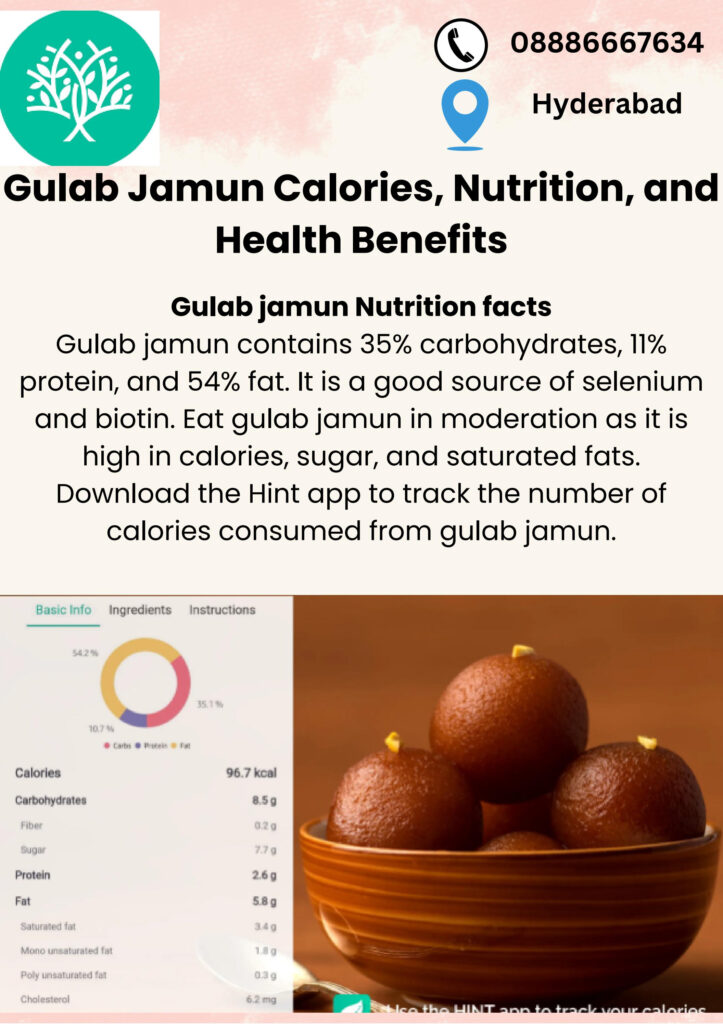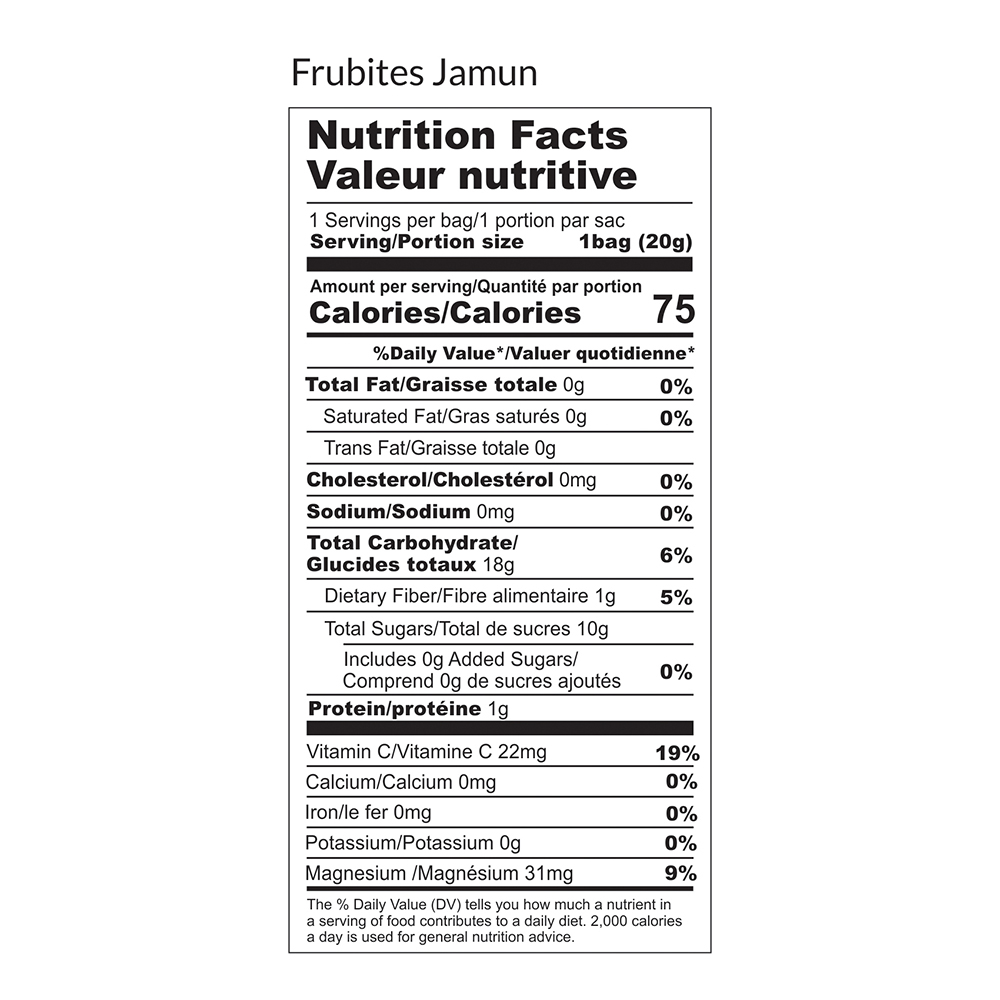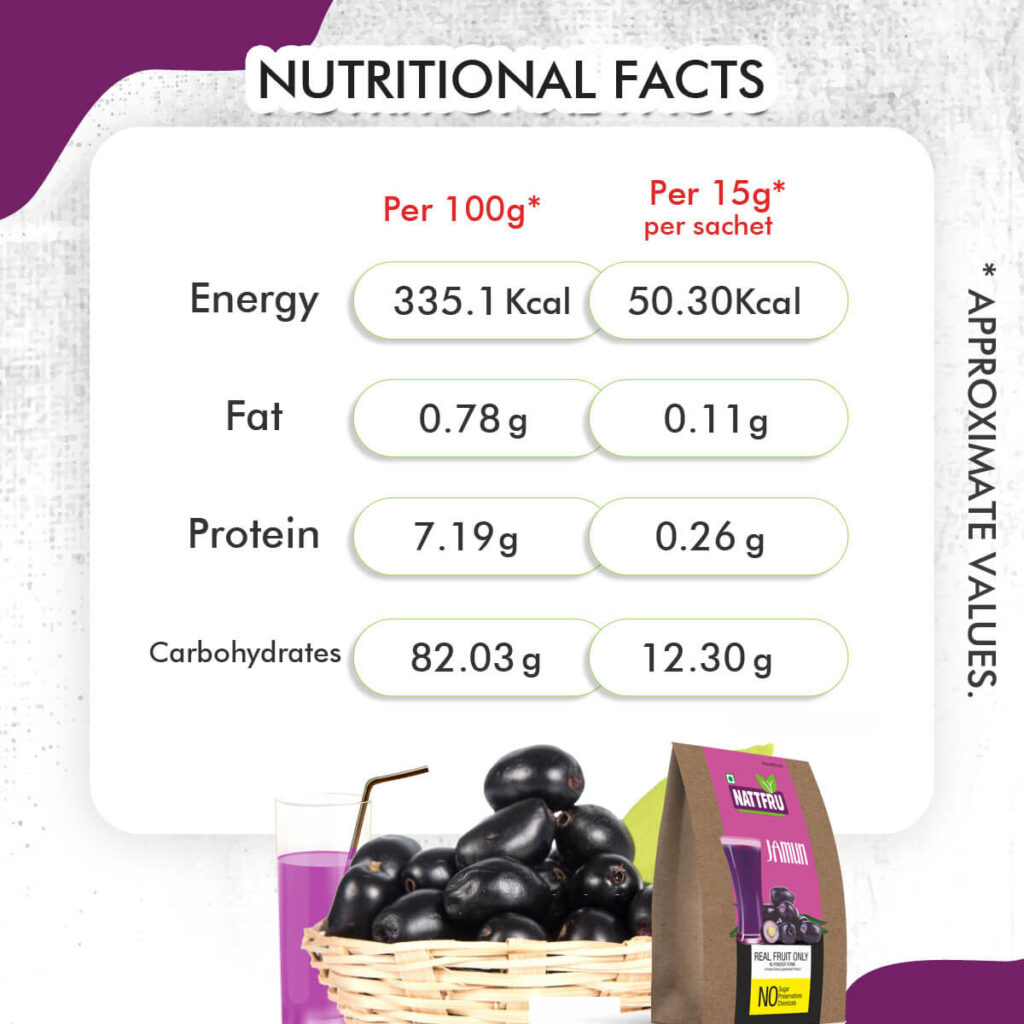Jamun Nutrition Information – Explore the essential dietary properties of Jamun Nutrition Information. If you’re focused on healthy eating, knowing the macronutrient profile of Jamun Nutrition Information can be a smart choice.
Caloric Value & Nutrient Content
- Caloric Content: Varies by brand.
- Carbohydrates: Depends on preparation.
- Fiber: Aids in digestion.
- Natural & Added Sugars: May include natural or refined sugars.
- Proteins: Amount varies by source.
- Fat Content: Includes different types of fats.
- Saturated Fats: Can contribute to cholesterol levels.
- Unsaturated Fats: Often found in natural sources.
- Trans Fats: Check for hydrogenated oils.
Nutritional Benefits
- Essential Vitamins: Varies depending on source Vitamin A, C, D, B12.
- Key Minerals: Contains Calcium, Iron, Magnesium, Potassium.
Ingredient Breakdown
Being aware of the ingredients of Jamun Nutrition Information is beneficial to make conscious decisions.
- Core Ingredients: Varies by brand.
- Artificial Ingredients: Some products include preservatives.
- Potential Allergens: May contain nuts, dairy, gluten.
Health Benefits & Risks
Wellness Perks
- Contributes to overall health.
- Boosts muscle recovery.
Health Drawbacks
- High in sugar.
- Not suitable for dietary restrictions.
Serving Suggestions
To maximize Jamun Nutrition Information, try these preparation methods:
- Great as a meal replacement.
- Goes well with nutrient-dense meals.
- Ideal as a snack for sustained energy.
Alternatives & Comparisons
Looking for an alternative option? Check out these alternatives:
- Healthier Alternatives: Explore whole foods.
- Comparison with Other Brands: Compared to [Another Product], Jamun Nutrition Information contains less nutrients.
Conclusion
Final takeaway, Jamun Nutrition Information can be a valuable addition with proper portion control. Choose thoughtfully to support your wellness.


